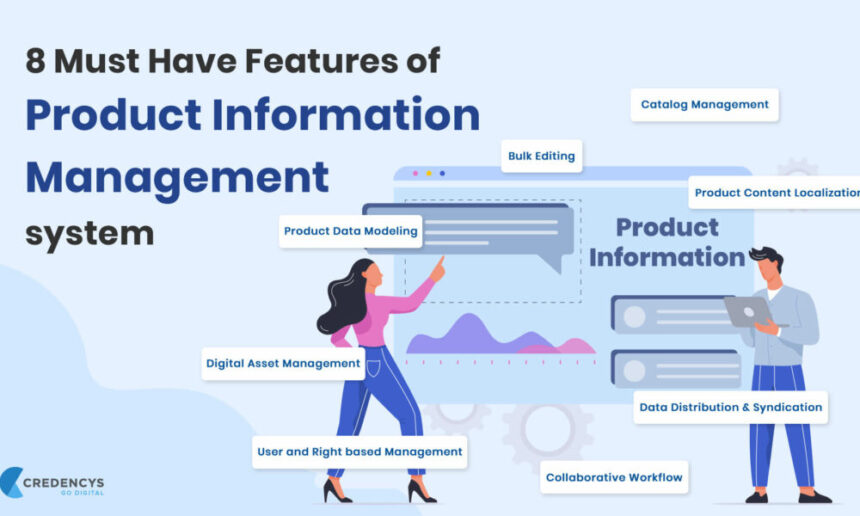In the fast-paced world of e-commerce, efficiency and accuracy are paramount. With countless products, categories, and platforms to manage, businesses often struggle to ensure that the right information is delivered to the right place at the right time. This is where Product Information Management (PIM) solutions come into play. A robust PIM system can help streamline operations, improve customer experience, and ultimately transform your e-commerce strategy.
In this article, we’ll explore how innovative PIM solutions are driving change in the e-commerce space and how you can leverage them to stay competitive in the market.
What is Product Information Management (PIM)?
Product Information Management (PIM) refers to the processes and tools used to manage all the data, content, and assets needed to market and sell products through distribution channels. A PIM system centralizes product data, allowing businesses to manage their information more effectively and ensure that product details are accurate across all sales channels, including websites, social media, and marketplaces.
Whether you’re managing thousands of SKUs or complex product variations, a PIM system provides a single source of truth for your product information, making it easier to maintain consistency, prevent errors, and deliver an optimized customer experience.
The Role of PIM in E-Commerce
E-commerce businesses face a unique set of challenges when it comes to product information. The need to frequently update content, manage multiple platforms, and ensure that product data is accurate can become overwhelming without the right tools in place. Here’s how a PIM solution can transform your e-commerce strategy:
1. Centralized Data Management
A major advantage of using a PIM system is its ability to centralize product data. Instead of juggling spreadsheets, emails, and outdated systems, PIM allows you to store all product information in one place. This ensures that every stakeholder, from marketing to sales, has access to the most current data.
By centralizing data, businesses can quickly make changes and updates across multiple platforms with just a few clicks. This is especially important for large e-commerce operations that may sell on multiple channels, such as their website, marketplaces like Amazon, and even in physical stores.
2. Improved Accuracy and Consistency
A common challenge in e-commerce is maintaining accurate and consistent product information. Errors in product descriptions, pricing, or availability can lead to a poor customer experience and lost sales. A PIM system ensures that every platform and channel presents the same accurate data, reducing the risk of costly mistakes.
For example, if a product is out of stock or its price changes, a PIM system automatically updates this information across all channels. This helps improve customer satisfaction by reducing the risk of misinformation, which can lead to returns, negative reviews, or abandoned shopping carts.
3. Enhanced Marketing Efforts
PIM systems not only manage product data but also enhance your marketing efforts by providing a comprehensive overview of your products. You can use the data to create targeted campaigns, promote specific products, or highlight product features that resonate with your audience.
Innovative PIM solutions can integrate with marketing tools such as Writing Assistant platforms to streamline the content creation process. By ensuring that product descriptions are optimized for SEO and customer engagement, PIM helps drive traffic and improve conversion rates.
4. Seamless Omnichannel Experiences
In today’s competitive market, offering a seamless omnichannel experience is critical. Customers expect a consistent shopping experience, whether they’re browsing your website, visiting a physical store, or engaging with your brand on social media. A PIM solution makes it easier to maintain consistent product information across all channels, providing customers with the same accurate details no matter where they interact with your brand.
For instance, a customer who starts shopping online and decides to visit a brick-and-mortar store will expect the same pricing, product specifications, and availability. PIM systems help ensure that this consistency is maintained across all platforms, improving the overall customer experience.
5. Scalability and Flexibility
As your e-commerce business grows, the volume and complexity of your product data will increase. Managing this information manually can become a time-consuming and error-prone process. PIM solutions are designed to scale with your business, allowing you to add new products, categories, and sales channels without overhauling your entire system.
Additionally, PIM systems are flexible and can be customized to meet your specific business needs. Whether you’re integrating with Warehouse management software to optimize your supply chain or with marketing tools to enhance your outreach, a PIM system can seamlessly adapt to your workflows.
6. Time and Cost Efficiency
By automating time-consuming processes, such as updating product descriptions or managing product variations, PIM systems can save significant time and reduce operational costs. Your team can focus on higher-value tasks, such as strategy and customer engagement, rather than spending time on repetitive updates. This leads to greater efficiency and a better allocation of resources.
Choosing the Right PIM Solution
Not all PIM systems are created equal, and choosing the right one for your business is critical to ensuring its effectiveness. Here are a few factors to consider when selecting a PIM solution:
- Ease of Use: The PIM should be user-friendly and intuitive, allowing your team to manage product data efficiently.
- Customization: Your PIM should be customizable to accommodate the specific needs of your business, whether that involves managing product variants or integrating with other tools.
- Integration Capabilities: Look for a PIM that easily integrates with your existing systems, including e-commerce platforms, marketing tools, and Warehouse management software.
- Scalability: As your business grows, your PIM should be able to scale with you, allowing you to manage more products and channels without any limitations.
- Support and Updates: Choose a PIM vendor that offers reliable customer support and regular updates to ensure that your system stays secure and up to date.
Conclusion
In the highly competitive e-commerce space, the ability to manage product information efficiently and accurately is crucial for success. Innovative PIM solutions provide the tools needed to centralize data, enhance marketing efforts, and ensure a seamless omnichannel experience. By leveraging the power of PIM, you can transform your e-commerce strategy, improve customer satisfaction, and ultimately drive growth.
Whether you’re a small business looking to streamline operations or a large corporation managing thousands of SKUs, investing in a PIM solution is a smart move that can significantly impact your bottom line.








